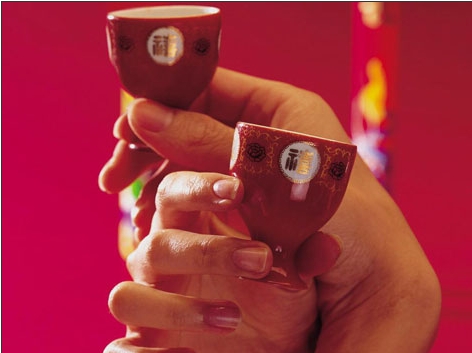
In ancient China, elaborate rituals and customs surrounded a marriage. In the pragmatism-oriented modern world, many of these customs are no longer performed (at least, not to the full extent as before). However, the marriage feast still retains many traditional aspects.
In China today, the wedding banquet is still one of the most important parts of a wedding. As in many countries, the wedding banquet is a big deal for the parents, maybe even more so for the parents than for the bride and groom.
Traditionally, the groom had paid for everything, but today the costs are often divided between the bride and groom's families. Putting together a guest list is often the biggest source of tensions, as it is universally. If the groom's family is paying for the entire banquet, then often the bride's family will want to invite as many friends and family as possible, while the groom's family wants to limit the guest list to keep costs down.
The traditional Chinese banquet is extremely elaborate, with something like 12 courses. Many times, only delicacies will be served, with an emphasis on the expensiveness and gourmet quality of the dishes, rather than what the family necessarily likes to eat. Some nice liquor is also usually served.
Guests are seated at round tables for the banquet, often based on a carefully arranged seating chart, to ensure guests are seated with people they know. The guests usually bring a monetary gift.
Before the feast, guests may play games or take pictures with the bride and groom. The best man and maid of honor often toast the bride and groom at the beginning of the meal. During the shark fin soup course, the bride and groom will go from table to table to toast the guests and thank them. The guests will also toast the bride and groom.
Afterward, the friends will often play pranks on the newlyweds, the intent of which is to make the groom publicly show his love for the bride.
The bride will change into several different gowns over the course of the wedding day.
At the end, the newlyweds and their relatives will stand at the door and thank the guests as they leave.





